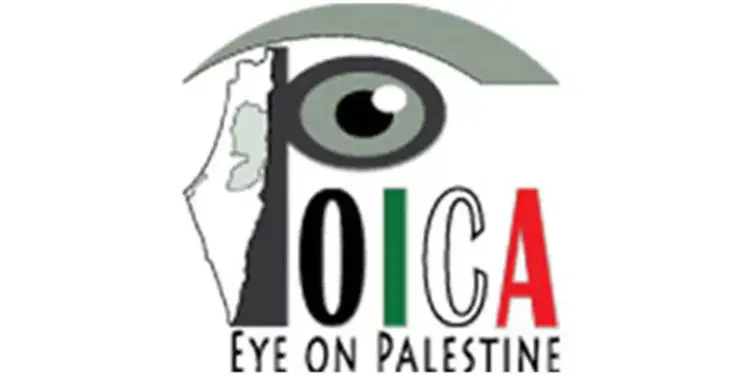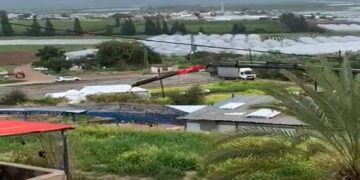Violation: destruction and confiscation of a number of water pumps.
Date: October 27, 2010.
Victims: farmers from Abu Da’if village.
Perpetrtors: the Israeli Occupation Army.
Details:
on October 27, 2010, Israeli Occupation troops broke into Abu Da’if to the south east of Jenin. During the operation, Israeli soldiers confiscated and destroyed number of water pumps; pumps that supply the village, in addition to Faqqo’a and Beit Qad, with the needed drinking water, also, water used for farming.
Despite the fact that there are huge amount of ground water beneath the village and its neighbors, the village suffers from extreme water shortage. The locals depend on the remains of 15 water wells that are almost depleted; these wells were used before the Israeli conquest in 1967.
The village is witnessing the war against water that has been initiated by the Occupation Authorities in the Occupied Territories. The village and its neighbors lands are considered to be the most fertile in Jenin, however, it suffers from the inability to exploit its water resources.
The village is also deprived from the connection with the regional water network. Despite of the Israeli Occupation attempts to dry out the old water wells and preventing the Palestinians from digging new ones, the already existing wells provide the village with part of the needed water. The wells have a pumping ability of 15-20 m3/hour; this is a small amount compared to the population of the village of 7400 people.
Table 1: information on the water wells targeted by the Israeli Occupation:
|
No.
|
Owner
|
Production (m3/hour)
(Depth m)
|
Family members
|
Estimated losses (NIS)
|
damage
|
|
1
|
Fa’iq Yaseen
|
17 / 120
|
8
|
6000
|
Destroying the pump, confiscating irrigation pipes
|
|
2
|
Ibrahim Yaseen
|
16/130
|
10
|
5000
|
Destroying the pump and irrigation pipes
|
|
3
|
Abdul Nasir Yaseen
|
14/130
|
7
|
13000
|
Confiscating the pump
|
|
4
|
Jaser Yaseen
|
15/120
|
7
|
11000
|
Confiscating the pump
|
|
Total
|
|
32
|
35000
|
|
The Village Council Head, Mr. Tahir Najib, stated to an LRC observer: “ the village water shortage has been going for a long time. The village is floating over the second largest ground water pool in the region, however, the Israeli Occupation forbids exploiting the water source. Whoever tries to search for risks persecution, imprisonment, or being fined; in addition to the confiscation of whatever tools he uses. Many wells have been destroyed throughout the years; this caused extreme shortages in the water supply. In addition, large areas have been plowed, drastically damaging the agricultural sector. Despite the fact the village lands are fertile, the agricultural areas are shrinking because of the high prices of water. One cubic meter of water costs 5 NIS (1.5$) which is considered extremely expensive. The villagers who have been consumed by unemployment are willing to exploit every inch of land if the water was available.”
Hassan Yasin (70), a farmer, described the misery of the town, he said: “the village was famous for its vegetable and cereals production. Its produce was distributed to the whole area! Not one family in the village was not able to self-provide the necessary agricultural products. Today, stability is lost, water resources are scarce; the land production is lower than ever! The Israeli Occupation is not leaving us alone; it did not only took over our lands but also want to deprive us from the water, even air if it could.”
Stop-work Order against the village olive oil production facility:
On October 27, 2010, the Israeli Occupation Army issued a military stop-work order against the village’s olive oil production facility. The order stated that the owner has until November 18, 2010 to adjust the status of the facility. November 18 is the date of the hearing session in Beit El Military Court. The Israeli Occupation Army justifies the act by claiming that the facility is located in area classified ‘C’ according to Oslo Accords and it is built without receiving the necessary permits.
Deir Abu Da’if Village:
The village is located 7 km to the south east of Jenin city. It is surrounded by a number of Palestinian villages including Beit Qad (north), Jalqamus and Al Mughayyir (south), Jalboun (east), and ‘Arabba and Jenin city (west).
The village is populated by around 7500 people; their major source of income is agriculture. The village is surrounded by fertile plain fields. The village’s total area is 12898 dunum including 1919 dunums planted with different trees, 4386 dunums planted with cereals, 2136 dunums planted with olive trees, and the rest is unexploited.













